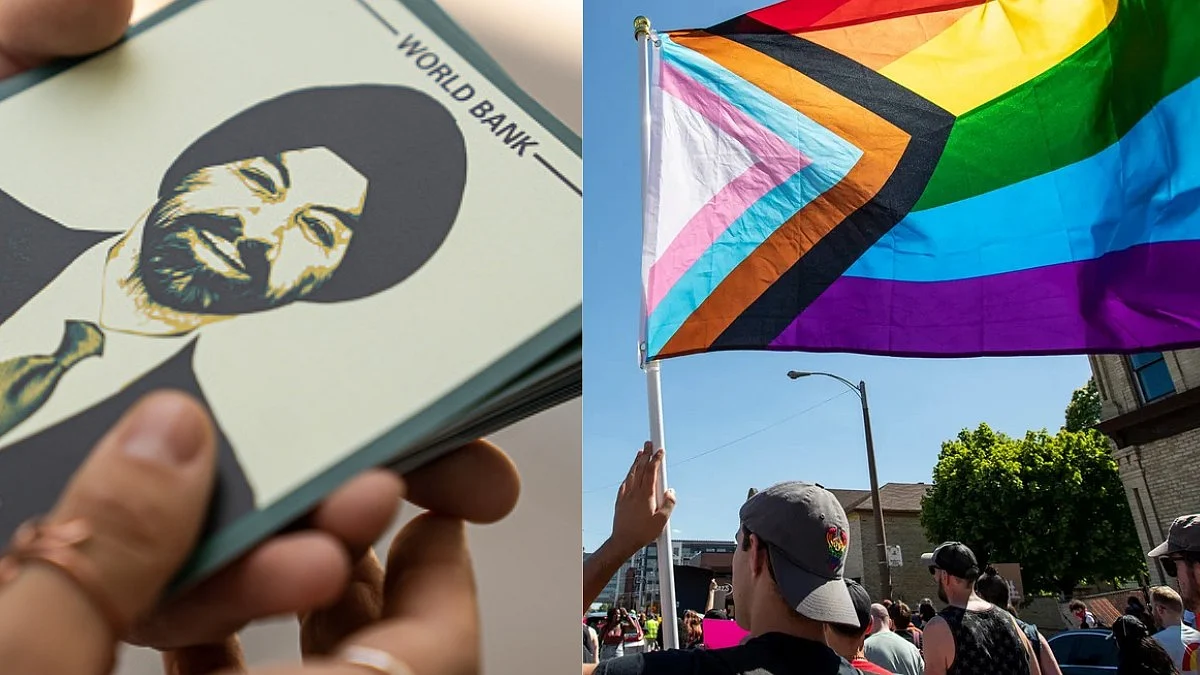World Bank pauses funds to Uganda over anti-LGBTQIA+ laws
Uganda’s Anti-Homosexuality Act (2023) imposes capital punishment for “aggravated homosexuality" as well as 20 years in prison for “promoting” homosexuality

The World Bank on Tuesday, August 9, declared a suspension of new loans to Uganda due to the country's controversial law targeting the LGBTQIA+ communities.
The Anti-Homosexuality Act (2023), approved by Ugandan president Yoweri Museveni, imposes capital punishment for “aggravated homosexuality" as well as 20 years in prison for “promoting” homosexuality.
The Washington-based lending institution stated that it will temporarily cease funding projects while it reviews the measures aimed at safeguarding the rights of sexual and gender minorities in its initiatives.
"No new public financing to Uganda will be presented to our Board of Executive Directors until the efficacy of the additional measures has been tested," the World Bank said.
Also Read: Uganda signs anti-LGBTQ bill into law
Amid pressure from several human rights organisations and members of the US Congress to take a stricter approach with Uganda since its introduction of the draconian and inhumane law, the Ajay Banga-led institution released a statement supporting its decision to halt any new loans.
'Uganda’s Anti-Homosexuality Act fundamentally contradicts the World Bank Group’s values. We believe our vision to eradicate poverty on a liveable planet can only succeed if it includes everyone irrespective of race, gender, or sexuality. This law undermines those efforts. Inclusion and non-discrimination sit at the heart of our work around the world,' reads the statement.
Furthermore, the World Bank outlined plans to enhance external monitoring and mechanisms for addressing grievances and enabling necessary corrective actions.
Immediately after its adoption in May, the World Bank had already expressed concern about the law, which contradicts the lender's core principles, and stated that it may negatively impact the international development organisation's transactions with the East African nation.
Indian-American Banga, who assumed office in June, quickly faced heat from 170 civic groups and human rights organisations to respond to the law with "specific, concrete and timely action" sanctioning the delivery of funds to Uganda. This latest step seems in line with those demands.
However, the statement does leave room for reconciliation: "The World Bank Group has a longstanding and productive relationship with Uganda; and we remain committed to helping all Ugandans—without exception—escape poverty, access vital services, and improve their lives."
Earlier, in June, the US had imposed travel restrictions on Ugandan officials in response to the homophobic law as well.
President Museveni, who has referred to homosexuality as a psychological disorder, rejects all international criticism of the law, however, and justifies it as being "necessary to stop the LGBTQ community from trying to recruit people", reported Al Jazeera.
Condemning the World Bank's move, the Ugandan government has called its stance "unjust and hypocritical". "There are many Middle East countries who do not tolerate homosexuals—they actually hang and execute homosexuals. In the United States of America, many states have passed laws that are either against or restrict activities of homosexuality... So why pick on Uganda?" asked Uganda's state minister for foreign affairs Okello Oryem.
The World Bank has been an active lender to Uganda for years, lending $5.4 billion in International Development Association financing to the nation by the end of 2022, covering many health and education projects that could now be affected by the fallout of the new anti-homosexuality law.
Follow us on: Facebook, Twitter, Google News, Instagram
Join our official telegram channel (@nationalherald) and stay updated with the latest headlines
Published: 09 Aug 2023, 4:19 PM